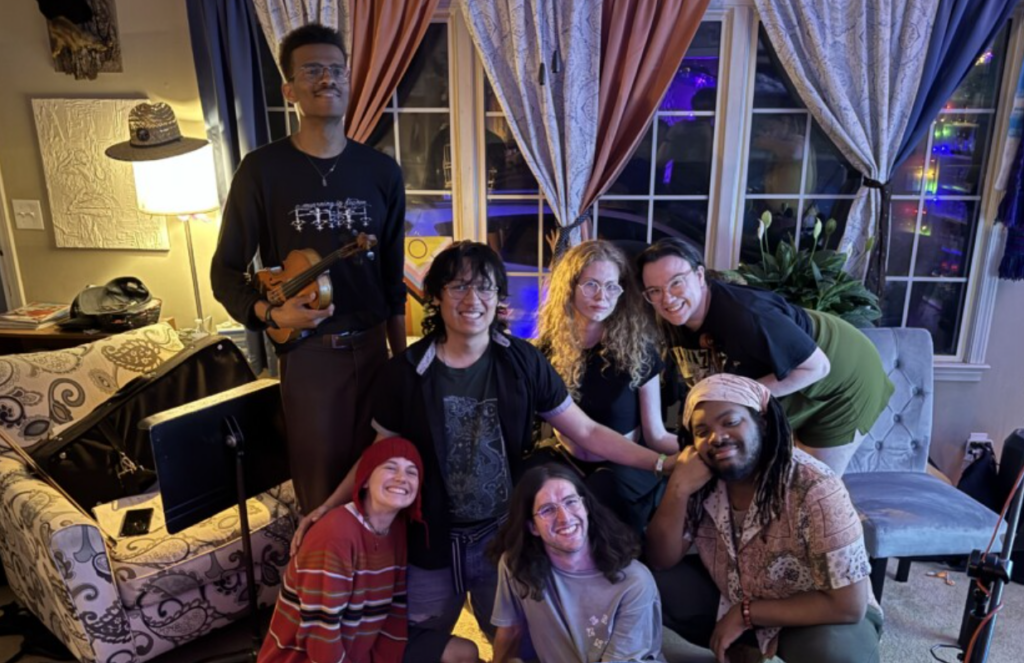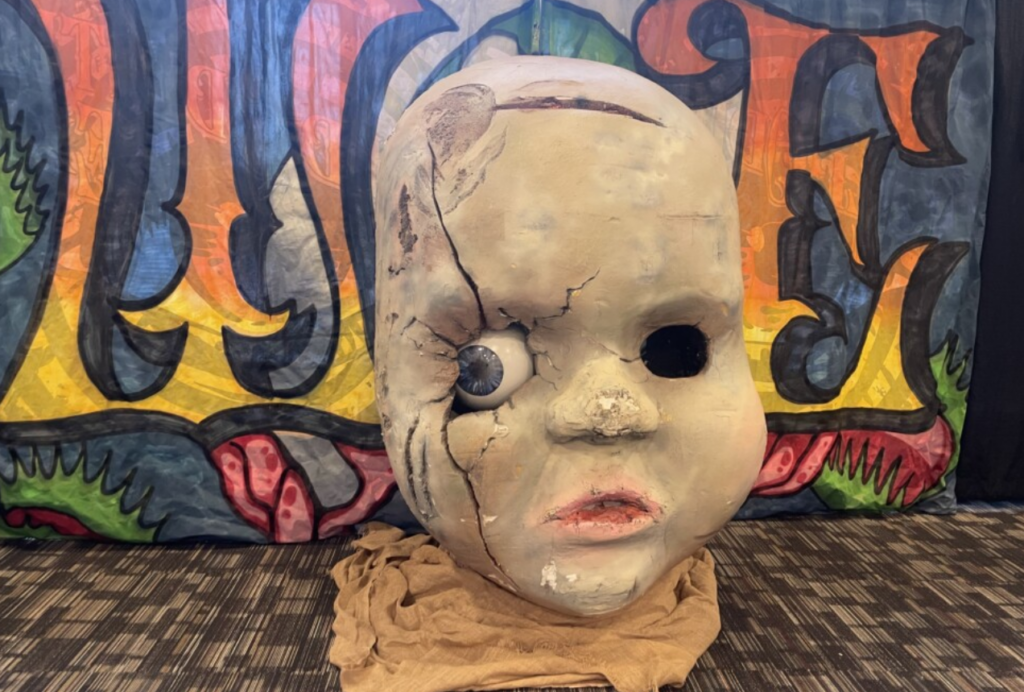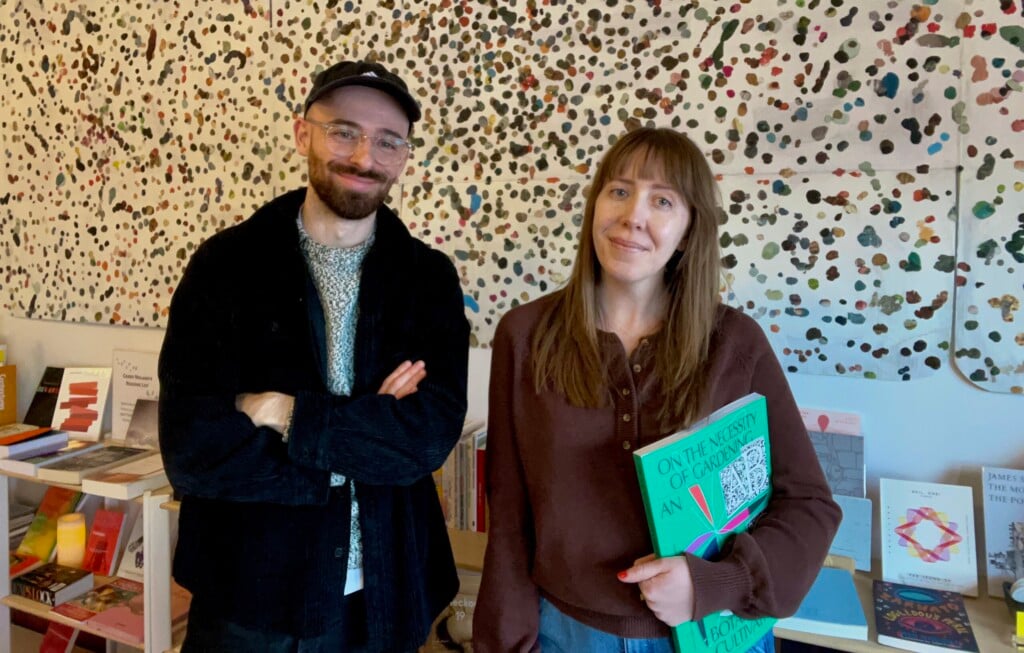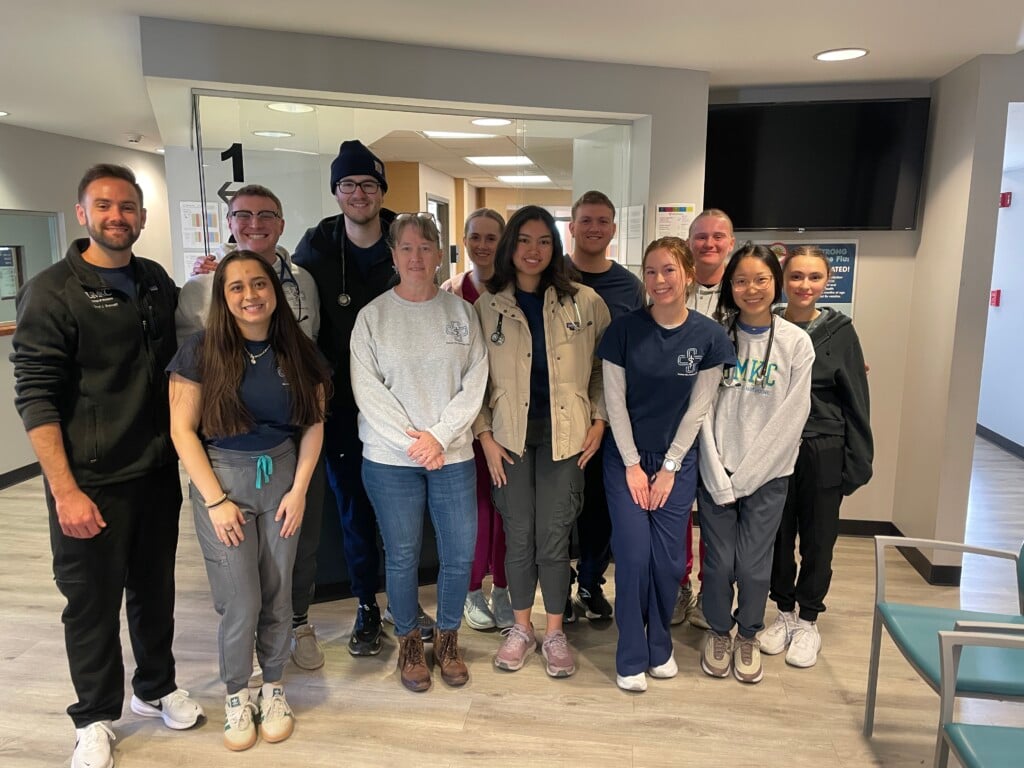Poet Vincente Perez discusses new collection Other Stories to Tell Ourselves and poetry as a means of preservation
Born and bred in the small town of Argentine in Kansas City, KS, Vincente Perez is a performance poet, scholar, and writer whose work lives at the intersection of poetry, hip-hop, and digital culture.
Perez was a 2021-2022 Poetry and the Senses fellow at UC Berkley Arts and Research Center. They are also a current PhD candidate in UC Berkeley’s performance studies program, where they use poetry as a form of research methodology.
In their debut chapbook, Other Stories to Tell Ourselves (Newfound 2023), Perez bravely confronts the impacts of colonization on today’s society. From exploring the ways queer men are able to show up in the world to challenging stigmas surrounding mental health in marginalized communities, Perez takes complex concepts and makes them digestible through storytelling.
The Pitch: Growing up in Argentine, were there any places where you started to find yourself and your footing in the world?
Perez: People may scoff at it, but middle school is really a central place where you’re forced to make a fork in the road and decide the type of kid that you’re going to be and who you’re going to surround yourself with. There were moments when Kansas City was the third city with the highest number of murders. The violence was palpable in my life. I remember just experiencing and witnessing the violence around me and wanting not just to get away from it but to analyze it.
Why is it that the homie that I grew up with lives in the same zip code but doesn’t get the same opportunities? Why can we go down Troost and quite literally watch the life expectancy go up? We can watch the homes have higher values. We can watch the police presence increase. We can watch resources being allocated to these communities. But, as we get closer to home, we watch the houses deteriorate, and we see the empty lots and stray dogs.
I saw my mom work multiple jobs just to stay afloat. I watched young girls decide if they were going to have a child at a young age. Those moments really taught me that our choices matter in life. As a young kid, the odds were stacked against me. I was going to become a statistic if I didn’t do everything in my power to try to escape my situation. I had to choose education to get myself out.
How did you get your start in writing and performance poetry?
Growing up in KCK, I attended Sumner Academy for high school. At Sumner, the arts are expected. I started off in debate, but I was always doing more artsy stuff, so I moved over to forensics. Right around that time, high school age is when I started rapping. I got my introduction to writing poetry by starting off as a rapper for about five or six years. I didn’t really compete or start doing slam poetry until I got to college around 2012.
What was the writing process like for this collection?
This project started in 2017. I had my undergraduate degree and was in a nonprofit, moving from being in academia, surrounded by all of these really rich buildings and gothic architecture, to working with students in the community. I was finding little to no way to support my art. I had to keep writing poetry despite being in a job that was asking so much of me, and despite being a parent of twin boys. I realized that for me, poetry is one of the ways that I tell stories about how to live life, how to live it well, and describe my experiences so that someone can learn from them. As I started to write, I abandoned the idea that I needed to be either a performance poet or get an MFA. Once I abandoned that, I started to receive way more success.
So, I started to write about the topics that interested me. I wanted to talk directly about colorism. I wanted to talk about systemic racism and what it teaches Black people about their value. I wanted to talk to other Black people and say we can’t let this idea that we’re just Americans keep us from our various traditions and heritages. If we’re African-descended people, we can use poetry to tell ourselves stories because it’s in us already. These are traditions that we’ve, you know, especially oral traditions, that we’ve kept around for centuries, and also under direct violence, you know, under surveillance. If our ancestors made it possible for us, we’ve got to keep doing it.
How has your PhD program informed your writing?
When I started to apply to grad schools after undergrad, I wanted to try to find a program that would let me do my poetry work and my scholarly work at the same time as mutually constitutive forces or things that supported one another. Instead of having to be a poet one day and then a scholar another. So, I found performance studies, which really help to look at the world through a performance analysis lens, we look at all human life and behavior as performance. I think of what it means to be performing masculinity, what it means for me to be performing professionalism in a workplace, and how the ideas of professionalism are coded in very racial and gendered ways.
As I started to look at the world through performance, I realized that I could take this way of analyzing the world, and I could do poetry with that same framework. So, I started to think about what are the performances we do in everyday life and how I can use poetry to tell those stories. That’s really how I got into performing and writing my poetry, as though it’s a radical form of theory, you know, a true way to activate some liberatory ideas about the world.
How has that made room for you to speak to the experiences Black queer men face in today’s society?
I’ve found that my poetry and my scholarly work helped me see that our identities are complex performances. We’re given the script of how to be a man and how to be straight and accepted in society. Even though we’re given and sometimes forced to read that script for our lives, we actually have the ability to perform our identities differently. We can perform our lives and our identity differently than the script tells us. Black queer men are given a pretty bad script. They’re given a script that they’re expected to perform. There are very lethal consequences to not being manly enough. There are lethal consequences to being gay. You can put yourself in danger if you stray away from the way a man is supposed to act.
Were there any authors or writers that influenced your writing in this collection?
Absolutely. Joy Priest, Ariana Brown, and Sonia Sanchez. I got a poetry fellowship in 2021, where I got to spend two semesters writing poetry with friends and poet community, and that really affected my writing. These were folks who were reading my poetry weekly, reading the rough drafts, and really giving them a lot of time and energy. They absolutely impacted the kind of poetry I was able to do in this book.
Can you speak a little bit about your poem “Fractals/Fractions”—what led you to write it as a couplet?
I thought about couplets and run-on enjambment sentences as a way to encourage the reader to abandon their expectations of poetry and what it looks like. A lot of these couplet phrases are really small, straightforward things that I wish people would think more deeply about. Instead of talking about houselessness, and the housing crisis, and instead of being preachy, I thought, what if I cut cleanly to these phrases that really get to the heart of the problem in America? I realized a lot of our leaders are treating human lives like a numbers game. I wanted to think about how after we’ve traversed slavery, having inhumane practices, and deciding that Black people were considered a fraction of a human for voting purposes—the three-fifths compromise. I wanted to imagine life getting put into these Excel sheets.
What advice would you give writers who may be hesitant to speak on issues that aren’t popular in mainstream poetry spaces?
The biggest piece of advice I have is to go read the poets that excite you. To find the poets whose work resonates with you, and don’t take that for granted. It can be really insightful to ask poets who have made it or are already making it about their journey and to possibly get mentorship. Start working with your art as a craft and a practice. Find resources for telling your truth and speaking to your community. Often, some of the best poetry is the hardest to write. It’s the moments where you’re getting intimate and maybe even subconscious, that would stay unexplored if you don’t go out and continue to work on it.





